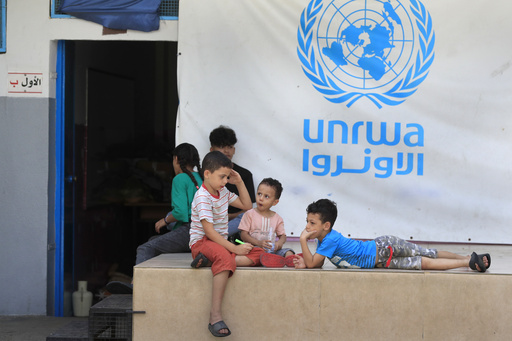
GENEVA — A year ago, Antonio Guterres, the U.N. Secretary-General, condemned the attacks by Hamas on Israel, which occurred on October 7, 2022, but remarked to the Security Council that these attacks “did not happen in a vacuum.” This statement was met with strong backlash from Israeli officials, who felt it undermined the gravity of the violence that led to the deaths of approximately 1,200 individuals and the hostage situation involving about 250 people. While Israeli leaders expressed indignation, Palestinian authorities commended Guterres for acknowledging human rights concerns and the hardships faced by Palestinians over decades of occupation.
The already strained relations between Israel and the United Nations have worsened significantly under Guterres’ leadership, especially in light of his remarks from October 24, 2023. Many observers note that current Israel-U.N. relations are at an all-time low.
The ongoing tension stems from a long history of disputes between the 193-nation U.N. and Israel, with incidents escalating in recent months. For instance, Israel’s Foreign Minister Israel Katz labeled Guterres “persona non grata,” indicating he is unwelcome in the nation. Katz criticized the U.N. Secretary-General for failing to condemn an Iranian assault on Israel and accused him of supporting militant groups, emphasizing that this would tarnish the history of the U.N.
Israel has also intensified its campaign against the U.N. agency that provides aid to millions of Palestinian refugees, known as UNRWA. Recently, two pieces of legislation have been put forward in the Israeli parliament that could effectively ban UNRWA’s operations in Israel. The agency’s head has voiced concerns that such decisions could lead to its collapse and severely impact aid for numerous affected individuals.
Following the October 7 attacks, Israel stated that some UNRWA employees were involved; consequently, there were dismissals following an internal investigation. In Lebanon, Israeli military operations have threatened U.N. peacekeepers tasked with monitoring a cease-fire after the 2006 conflict with Hezbollah. Israeli forces have fired upon these personnel, arguing that Hezbollah’s military presence near U.N. positions jeopardizes their safety.
Moreover, the U.N.’s highest court publicly stated that Israel’s occupation of Palestinian territories is illegal and called for an end to it. Prime Minister Benjamin Netanyahu countered this assertion by claiming these areas are historically part of the Jewish homeland. In his recent address to the U.N. General Assembly, he criticized the organization as being biased and stated that it is perceived as a “contemptuous farce” by fair-minded individuals until Israel is treated equitably.
Amidst this turmoil, the United Nations continues to document the human toll of the conflict. Reports indicate that Israel’s military actions in Gaza have resulted in the deaths of over 42,000 Palestinians and left many more wounded, with significant destruction and displacement affecting nearly 90% of Gaza’s residents. The U.N. also announced that this conflict has seen the highest number of fatalities among U.N. personnel since the organization’s creation post-World War II.
Despite the adverse relationships, some U.N. aid organizations have managed to provide assistance. UNICEF has implemented cash distribution initiatives to alleviate the economic distress exacerbated by the ongoing violence and rising costs. They have delivered clean water and are working to restore desalination facilities. Additionally, the agency has supplied 1.2 million doses of polio vaccines.
The World Health Organization (WHO) took advantage of humanitarian pauses in fighting to conduct a vaccination drive for children in Gaza, though they faced challenges in reaching certain areas due to instability. Despite access issues, WHO has provided sanitation and health services to nearly two million people.
UNRWA remains crucial in the region, delivering essential services despite facing significant restrictions. Since the escalation of violence on October 7, the agency has managed to conduct almost six million medical consultations, an average of three per person in Gaza. UNICEF officials highlight that without UNRWA, humanitarian efforts would likely falter, as noted by spokesman James Elder.
In Lebanon, the U.N.’s World Food Programme has effectively prepared for the heightened tensions, providing necessary food and cash assistance to over 200,000 displaced individuals.
However, the U.N. struggles with numerous challenges in its humanitarian efforts. Guterres and other U.N. leaders emphasize that a ceasefire is crucial for delivering aid effectively. Regrettably, the organization has been marginalized in ceasefire discussions, and various obstacles hinder the distribution of aid, including ongoing conflict, Israeli directives, and security concerns.
Israeli diplomats have attributed the lack of aid in Gaza to Hamas, asserting that the group manipulates humanitarian resources for its agenda. The latest assessments indicate a grave hunger crisis looming over the population, with about 86% experiencing severe food insecurity.
Under pressure from the United States, Israel has been urged to increase humanitarian aid deliveries significantly. At the same time, U.N. agencies report critical shortages in access to essential supplies due to territorial constraints imposed by Israel. Despite limited evacuations for medical emergencies, many individuals continue to await urgent assistance.
Dr. Hanan Balkhy from the WHO’s eastern Mediterranean division has mentioned encountering substantial difficulties in accessing some affected areas, particularly around northern Gaza. Meanwhile, the World Food Programme has put out an appeal for financial support to assist nearly one million individuals until the end of the year if supply channels remain open.
